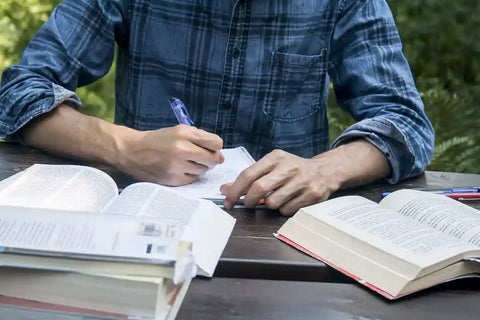How Can a Proofreader or Editor Help with a Rejected Manuscript
There are a great many ways in which a professional proofreader or editor can help an author who is coping with revising a manuscript that has been rejected by a publisher. The following list is designed to outline key proofreading services. Specific tasks may vary among individuals, texts and situations, but these observations are generally applicable.
• Language correction and improvement is one of the primary services provided by both proofreaders. Many manuscripts are rejected by acquisitions proofreaders each day due to language problems. These can range widely from grammatical errors to mistakes in spelling and punctuation to awkward or confusing phrases to failure to observe consistent usage patterns. All of these problems can compromise the clear communication of advanced research. In most cases, authors who are unable to avoid the problems in the first instance find it challenging to fix them when a press requests changes, so a proofreader or editor can be enormously helpful, but remember that neither should completely rewrite a text for an author.
• The revisions necessary to ensure conformity with publisher guidelines are a specialty of many professional proofreaders. Failure to follow publisher guidelines or author instructions when preparing a manuscript for submission to a journal or press can result in immediate rejection because many of the requirements in these guidelines tend to be highly visible elements. An acquisitions editor can scan a text, detect the problems immediately and lighten his or her workload by eliminating any manuscript that does not follow the instructions. Proofreaders and proofreaders tend to be familiar with deciphering such guidelines and following them with precision and consistency, so their help can quickly resolve problems of this kind.
• Formatting for an effective presentation as well as to meet publisher requirements is often among the tasks a proofreader or editor will perform for clients. Layout, structure, spacing, font choices and many other elements of a manuscript can be considered aspects of its formatting, and those who read and correct the writing of others day after day tend to be adept at spotting what works and what does not as well as acquainted with the software functions used to resolve problems and improve presentation and accessibility. Their expertise will come in very handy if formatting is a reason for rejection.
• The citations and references that are a nightmare for many authors are standard fare for most proofreaders, particularly those who specialise in academic, scientific and professional writing. No matter how complex the citations and references in a manuscript may be and how confusing the publisher instructions for recording them may seem, professional proofreaders are usually well equipped to tackle them. They will be able to make corrections, ensure consistency and alert authors whenever necessary material is missing from citations and references.
• Correcting simple errors in typing and pointing out where similar errors in numerical data and the like appear are also activities that come naturally to professional proofreaders, so if an author has been informed that there are too many careless errors in his or her manuscript, a proofreader or editor will have the well-trained eyes to detect and the knowledge to correct them.
Why Our Editing and Proofreading Services?
At Proof-Reading-Service.com we offer the highest quality journal article editing, dissertation proofreading and online proofreading services via our large and extremely dedicated team of academic and scientific professionals. All of our proofreaders are native speakers of English who have earned their own postgraduate degrees, and their areas of specialisation cover such a wide range of disciplines that we are able to help our international clientele with research editing to improve and perfect all kinds of academic manuscripts for successful publication. Many of the carefully trained members of our manuscript editing and proofreading team work predominantly on articles intended for publication in scholarly journals, applying painstaking journal editing standards to ensure that the references and formatting used in each paper are in conformity with the journal’s instructions for authors and to correct any grammar, spelling, punctuation or simple typing errors. In this way, we enable our clients to report their research in the clear and accurate ways required to impress acquisitions proofreaders and achieve publication.
Our scientific proofreading services for the authors of a wide variety of scientific journal papers are especially popular, but we also offer manuscript proofreading services and have the experience and expertise to proofread and edit manuscripts in all scholarly disciplines, as well as beyond them. We have team members who specialise in medical proofreading services, and some of our experts dedicate their time exclusively to dissertation proofreading and manuscript proofreading, offering academics the opportunity to improve their use of formatting and language through the most exacting PhD thesis editing and journal article proofreading practices. Whether you are preparing a conference paper for presentation, polishing a progress report to share with colleagues, or facing the daunting task of editing and perfecting any kind of scholarly document for publication, a qualified member of our professional team can provide invaluable assistance and give you greater confidence in your written work.
If you are in the process of preparing an article for an academic or scientific journal, or planning one for the near future, you may well be interested in a new book, Guide to Journal Publication, which is available on our Tips and Advice on Publishing Research in Journals website.








